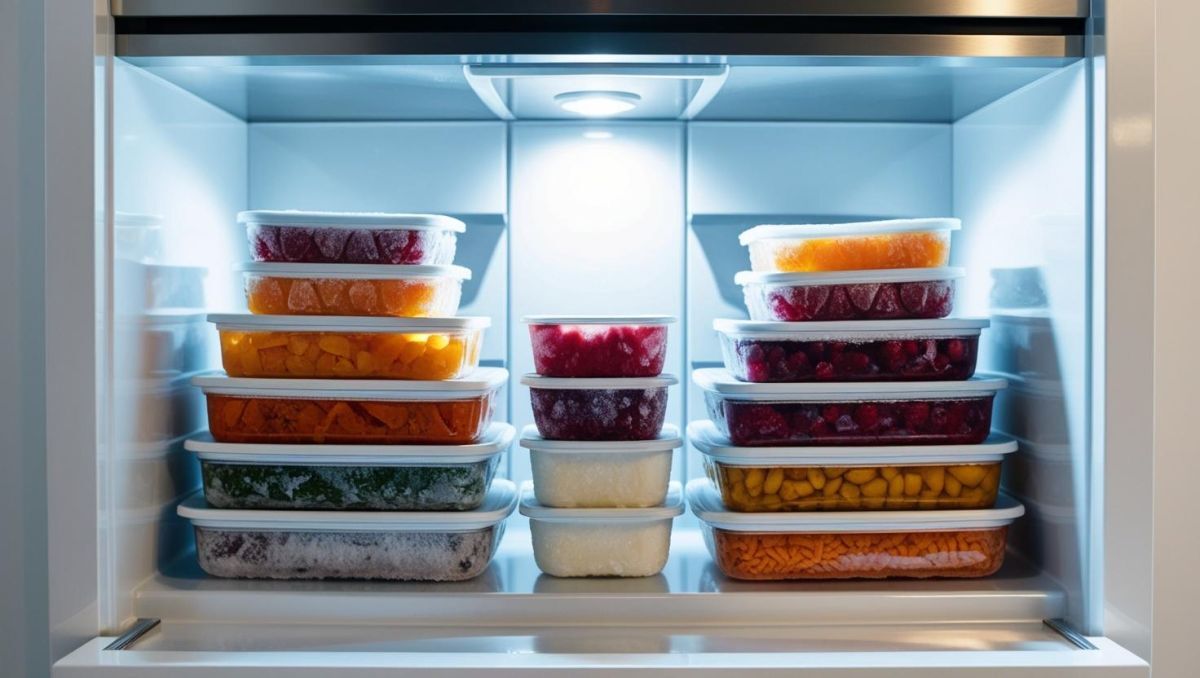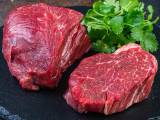Can we really freeze everything we want? 5 foods we freeze wrongly (and how to preserve them differently)

The freezer is our everyday superhero. It saves leftovers, prolongs the life of market vegetables, and helps us out on those evenings when we don't have the time or energy to cook. But beware: not everything can be frozen with impunity.
Some foods don't stand up well to the cold, change texture, lose their taste... or even turn out really bad after defrosting. Here are 5 foods that we often reflexively freeze, but which we'd be better off keeping elsewhere ;-)
1. Raw vegetables
Green salads, cucumbers, raw tomatoes... Once in the freezer, they lose all their charm: crunchiness, freshness, hold. This is due to their high water content, which forms ice crystals and breaks their fibers when defrosted.
Avoid: lettuce, radishes, endives, cucumbers, raw tomatoes.
- Tip: cook them first (homemade tomato sauce) or keep them in a cool place, eating them soon after purchase.
2. Whole eggs... in the shell
It's tempting to want to extend the life of eggs by freezing them. But putting a whole egg with its shell in the freezer is a really bad idea. The water in the egg expands as it freezes and can cause the shell to burst, creating a mess... and a health risk.
Avoid: whole raw eggs in their shells.
- Tip: break them, beat them lightly, then freeze them in an airtight box. You can also separate the whites and yolks and freeze them separately.
3. Soft cheeses
Camembert, Brie, goat cream cheese... once defrosted, these cheeses become pasty, grainy and sometimes watery. They lose their flavor and texture, and frankly, that's not what you want on a gourmet platter.
Avoid: soft or fresh cheeses (faisselle, ricotta, etc.).
- Tip: choose grated or hard cheeses (such as Emmental or Comté), which can withstand freezing better, especially if they are to be cooked.
4. Raw potatoes
They turn black, grainy and bitter after freezing. It's the structure of the starch that doesn't hold up. The result: when pan-fried or baked, they disintegrate and don't hold up as well.
Avoid: raw potatoes (whole or in pieces).
- Tip: cook them first (mashed, au gratin, soup, etc.) before freezing. Already cooked, they stand up much better to cold.
5. Cream or milk-based sauces
Sauces such as béchamel, cheese sauce and even some creamy soups tend to go out of phase when defrosted. The fat separates from the liquid, creating lumps and losing the creamy texture.
Avoid: unthickened cream sauces, light béchamel sauces, cream desserts.
- Tip: thicken your preparations well before freezing, or add the cream after defrosting, when reheating.
In short: the freezer, yes... but not for everything!
We love our freezer, that's for sure. But for it to remain a true ally in the kitchen, you have to know what you're putting in it. Some common mistakes can spoil a dish, make it less tasty, or even lead to waste.
The right reflex? Before putting food in the freezer, ask yourself if it likes it cold, or if it's better to process it first (cooking, blending, portioning...).
And there's no need to store everything either: some foods just deserve to be eaten in the next few days. That's what smart daily cooking is all about! :)
Sources :
"Freezing: food that doesn't like the cold" - UFC-Que Choisir
You may be interested in:
 Adèle Peyches
Adèle Peyches

